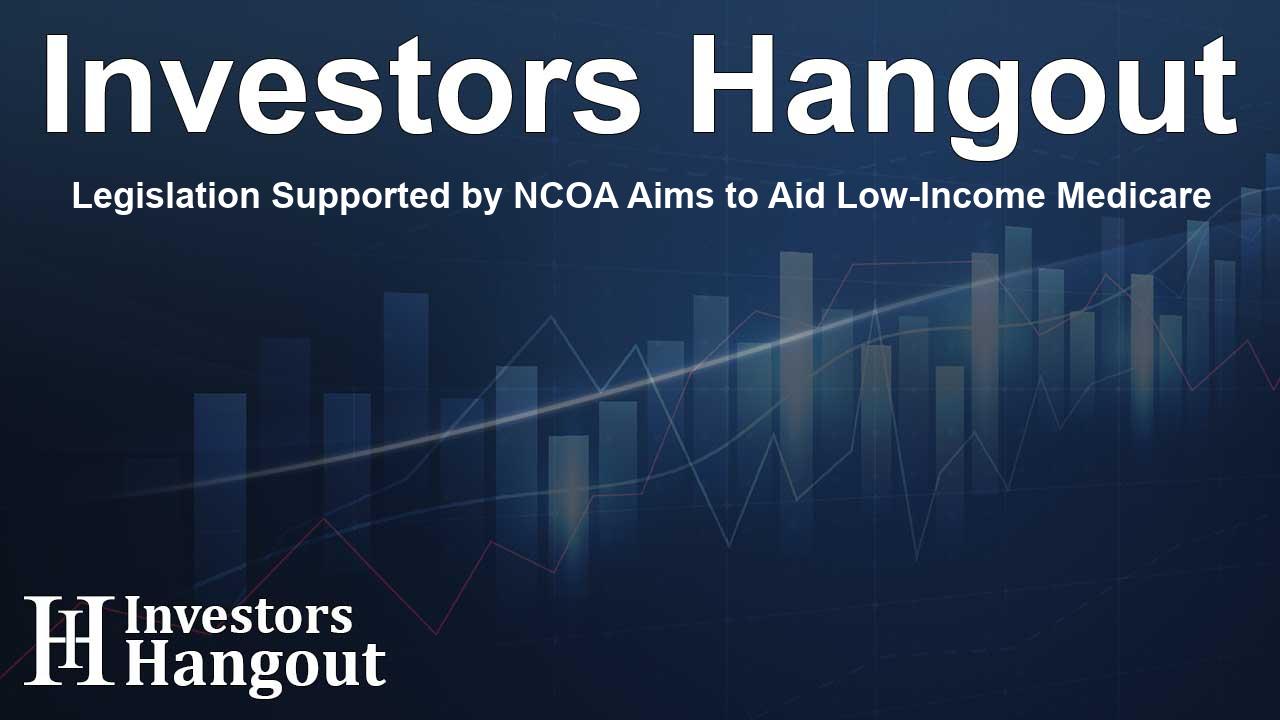Legislation Supported by NCOA Aims to Aid Low-Income Medicare

NCOA Supports New Medicare Legislation for Low-Income Beneficiaries
The National Council on Aging (NCOA) has expressed its strong support for the recent legislation introduced by Senators Marsha Blackburn and Lisa Blunt Rochester. This pivotal bill, known as S. 2466, seeks to reauthorize funding aimed at helping low-income Medicare beneficiaries access essential financial assistance programs.
Importance of Funding for Low-Income Medicare Beneficiaries
The legislation aims to ensure that millions of low-income older adults can discover and enroll in financial assistance initiatives that enhance their Medicare benefits. This continued federal funding is essential to support the estimated 20.3 million Medicare beneficiaries who live at or below 150% of the federal poverty level.
Reaching the Underserved Population
In the previous year, the efforts of NCOA led to connecting approximately 4.7 million lower-income older adults to Medicare programs that provide critical financial support. However, there remains a substantial challenge to reach many others who qualify for assistance but are currently unaware of it.
Impact of Legislation on Health Care Affordability
Ramsey Alwin, President and CEO of NCOA, stated, "NCOA is thrilled that Senators Blackburn and Blunt Rochester have joined forces to introduce legislation that will help low-income Medicare beneficiaries across the country." He emphasized the importance of making healthcare more affordable, particularly for older Americans in need.
Community-Based Organizations and Assistance Programs
This crucial investment not only supports Medicare State Health Insurance Assistance Programs but also promotes aging and disability resource centers. The National Center on Benefits Outreach and Enrollment plays a critical role by offering competitive grants to community organizations, which have established 87 Benefits Enrollment Centers across 38 states. These centers are dedicated to developing successful strategies for enrolling eligible older Americans in assistance programs.
The Challenge of Affording Medicare
Many individuals do not realize that Medicare is not without costs. Low-income older adults and those with disabilities are often faced with tough choices, such as sacrificing necessary medications or medical visits to cover basic living expenses. Typically, single beneficiaries must have an annual income of less than $21,870 and under $15,160 in non-housing assets to qualify for vital assistance.
The Importance of Medicare Savings Programs
Without the support of Medicare Savings Programs and the Part D Low-Income Subsidy (Extra Help), many Medicare beneficiaries struggle to afford necessary healthcare as out-of-pocket expenses continue to rise. It is, therefore, crucial for Congress to act swiftly to ensure the sustainability of these programs for older Americans.
Conclusion and Call to Action
The timely reauthorization of funding for low-income Medicare beneficiaries is critical to improving the health and well-being of millions of seniors, especially those in rural and underserved areas. By ensuring that individuals can access the benefits they are entitled to, we can help create a healthier and more financially secure aging population.
About NCOA
The National Council on Aging (NCOA) stands as the national advocate for the elderly, committed to securing the right for everyone to age with dignity and support. Through collaboration with a wide array of partners, NCOA offers resources, tools, and advocacy to empower older adults in achieving health and financial security. Established in 1950, NCOA has been a leading voice in promoting the welfare of older individuals. To stay updated on their initiatives, follow them on social media.
Frequently Asked Questions
What is the purpose of the S. 2466 legislation?
The legislation reauthorizes funding to support low-income Medicare beneficiaries in accessing financial assistance programs for their healthcare needs.
Who are the sponsors of the legislation?
Senators Marsha Blackburn and Lisa Blunt Rochester are the primary sponsors of this important bill.
Why is funding for this program essential?
Continued funding is crucial for reaching the millions of Medicare beneficiaries who qualify for assistance but may not be aware of their eligibility.
How many older adults benefited from NCOA's efforts in the last year?
Approximately 4.7 million lower-income older adults were connected with financial assistance programs in recent efforts.
What are Medicare Savings Programs?
These programs help eligible individuals cover their healthcare costs, ensuring access to necessary services without undue financial burden.
About The Author
Contact Caleb Price privately here. Or send an email with ATTN: Caleb Price as the subject to contact@investorshangout.com.
About Investors Hangout
Investors Hangout is a leading online stock forum for financial discussion and learning, offering a wide range of free tools and resources. It draws in traders of all levels, who exchange market knowledge, investigate trading tactics, and keep an eye on industry developments in real time. Featuring financial articles, stock message boards, quotes, charts, company profiles, and live news updates. Through cooperative learning and a wealth of informational resources, it helps users from novices creating their first portfolios to experts honing their techniques. Join Investors Hangout today: https://investorshangout.com/
The content of this article is based on factual, publicly available information and does not represent legal, financial, or investment advice. Investors Hangout does not offer financial advice, and the author is not a licensed financial advisor. Consult a qualified advisor before making any financial or investment decisions based on this article. This article should not be considered advice to purchase, sell, or hold any securities or other investments. If any of the material provided here is inaccurate, please contact us for corrections.
